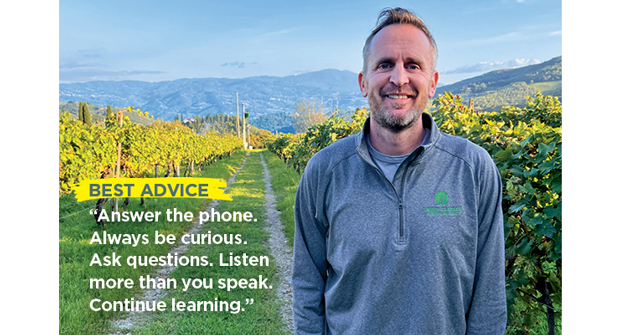I got into government relations by accident. You see, I never aspired to wear a suit and tie and walk the halls of government buildings talking to politicians about turf and ornamentals. No, I wanted to be outdoors in the fresh air like everyone else in our industry.
But I was working in the Northeast, a part of the country that can be particularly hostile to the green industry on a number of important issues, including fertilizer and pesticide use, gasoline-powered equipment and a host of other things.
In 2013, the New England Interstate Water Pollution Control Commission, or NEIWPCC (pronounced “new-ee-pick” … these people were terrible at the government acronym naming game), put together voluntary guidelines for turfgrass fertilizer use with the premise that our applications to lawns were a significant source of water pollution. Certainly, when fertilizer is inappropriately applied, we can expect runoff to occur, and that fertilizer will wind up in the nearest body of water.
I thought this group had a preordained conclusion — to significantly reduce the amount of fertilizer being applied to turf through regulation — and that they were going through the motions to justify that conclusion. In March of that year, I sat through a stakeholder meeting that brought together groups ranging from the Environmental Protection Agency to fertilizer manufacturers to state agencies and environmental groups. And then there was little ol’ me, the skunk at the garden party, representing the industry they thought was responsible for this mess.
After that stakeholder meeting, a draft document was circulated for review. It wasn’t terrible, but it needed work, in my opinion. I put together comments to submit with my thoughts, but before I could finish writing them, we learned that a state representative in New Hampshire had filed legislation codifying what was in the NEIWPCC draft. It wasn’t even finalized, and this legislator wanted to make it a law!
On the day the bill was to have a hearing, my boss told me he wasn’t available to travel to Concord and that I was to represent our interests. So, I put on my suit and tie and traveled north. When I got there, I quickly discovered that I was the only person in the jam-packed room who would testify against the bill.
When my turn to testify came, I blasted it with both barrels. I told them that the language was lifted directly from the NEIWPCC draft document, contained several items we disagreed with, and that the legislation was premature and would significantly harm our ability to service our customers. When I finished, there were boos and catcalls from the audience. I returned to my seat for the remainder of the hearing. Once it concluded, I got up and made my way out of the building; there was no reason to hang around, and I had a long drive home.
As I walked out of the building, I heard an angry voice calling my name, telling me to stop. It was the committee chairman chasing after me. Out came his index finger pointed at me as he tried to tell me a thing or two about what I had to say in the hearing. In response, out came my index finger, and I gave as good as I got. At one point, one of my lobbyist friends walked up to witness this angry exchange, and I noticed the look of horror on her face as two men had a very intense exchange on the steps of the New Hampshire Capitol.
When this gentleman had finished telling me why I was wrong and how our industry was ruining the environment, his face brightened, and he said, “By the way, I am one of your customers. You guys do a great job!” You could have knocked me over with a feather. That’s another thing that I’ve gotten used to in my job — cognitive dissonance.
Ultimately, states in the Northeast enacted legislation restricting plant nutrients that we could live with and incorporate into our best management practices. It’s just wild how we sometimes get over the finish line.


